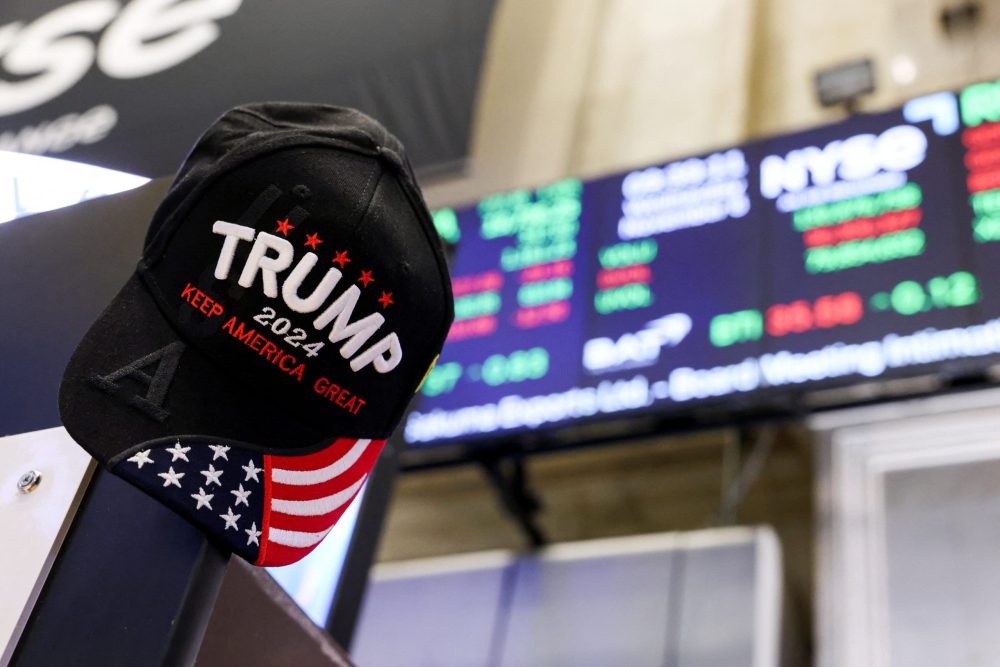Trump taps Jamieson Greer as US trade representative to ramp up tariff plans

Washington | Reuters — President-elect Donald Trump on Tuesday chose trade lawyer Jamieson Greer as his new U.S. trade representative, elevating a key veteran of his first-term trade war against China to execute a sweeping tariff agenda that promises to upend global trade.
“Jamieson will focus the Office of the U.S. Trade Representative on reining in the Country’s massive Trade Deficit, defending American Manufacturing, Agriculture, and Services, and opening up Export Markets everywhere,” Trump said in a statement.
Read Also


CN optimistic despite potential strike risk
A CN Railway executive says there’s lots of track left ahead before it comes down to a labour disruption. The organization has been dealing with multiple workforce disputes over the past year, and another is impending.
Greer, 44, served as chief of staff to Trump’s former U.S. trade representative, Robert Lighthizer, the architect of Trump’s original tariffs on some $370 billion (C$519.4 billion) worth of Chinese imports and the renegotiation of the North American free trade deal with Canada and Mexico.
In this role, Greer participated with Lighthizer in all negotiations with Chinese officials through the signing of a “Phase 1” trade deal with Beijing in January 2020. Under that agreement, China pledged to buy some $200 billion ($280.8 billion) worth of U.S goods over two years, a goal never achieved, partly due to the COVID-19 pandemic.
Greer, who previously worked with Lighthizer at the law firm Skadden, Arps, Slate, Meagher & Flom, on steel trade remedy cases, left USTR in May 2020 to join the King & Spalding law firm in Washington. There, he has represented clients including domestic manufacturers in trade remedy cases, export and import compliance and investment security matters.
Lighthizer called Greer an “excellent choice” for USTR.
“He knows the law and has great judgment. He works around the clock and he agrees with and is loyal to the president,” Lighthizer said in an emailed statement. Greer “has spent decades preparing for this opportunity to lead the trade issue for the next four years.”
Trump had previously named Wall Street CEO Howard Lutnick to lead his trade strategy as head of the Commerce Department, including “direct responsibility” for USTR.
Early tariff broadside
Trump got off to an early start on specific tariff plans, vowing on Monday to impose duties of 25 per cent on imports from Mexico and Canada and 10 per cent on Chinese goods unless they halt flows of the deadly opioid fentanyl and illegal migrants into the U.S. The threat has drawn warnings of retaliation.
The threat comes on top of Trump’s vow to impose tariffs of 60 per cent on Chinese imports and 10 per cent to 20 per cent on all goods from elsewhere. Economists say that the actions will reorder trade flows and raise costs, but Trump argues it will rebuild the U.S. industrial base
Greer’s views on China are firmly aligned with both Trump and Lighthizer and on the need for strong actions against China to counter its state-driven efforts to dominate global industries and protect U.S. jobs and industries.
During testimony in May before the U.S.-China Economic and Security Review Commission, Greer argued in favor of “increased tariff usage” to level the trade playing field between the U.S. and China, along with stronger export controls to safeguard sensitive U.S. technologies.
He applauded President Joe Biden’s steep tariff increases on Chinese imports to shield strategic industries such as electric vehicles, batteries and semiconductors, but said stronger action was needed.
“I’m gravely concerned not only with Chinese efforts to dominate global markets and some of the most important technologies and advanced manufactured goods, but also with the Chinese government’s use of trade investment to support its state-owned enterprises, its military, and then to drive an economy that appears to be gearing up for conflict with the United States and others,” Greer said.
Greer said during a February tradeforum that his clients have been seeking to diversify their supply chains away from China, partly a result of the tariffs imposed on Chinese imports during Trump’s first term.
— Additional reporting by Jasper Ward
Source: Farmtario.com

